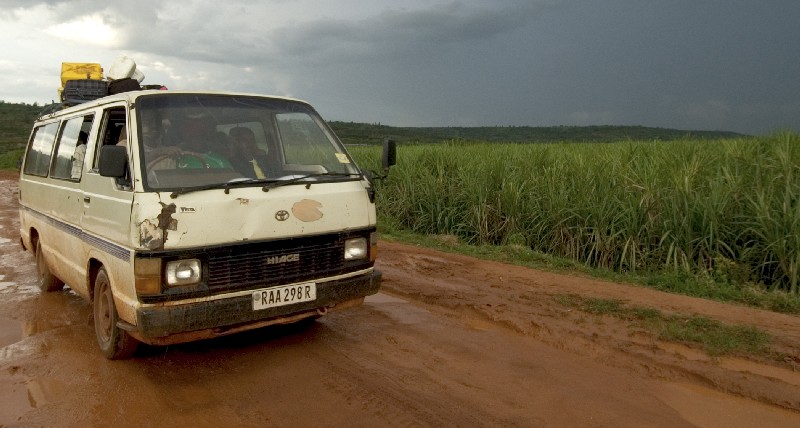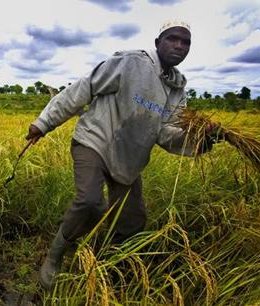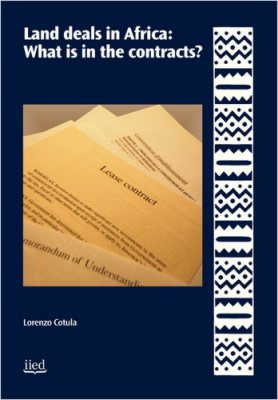 Agriculture, Africa © Arne Hoel/World Bank/afrol NewsAgriculture - Nutrition | Human rights How African land deals override locals
Over the past few years, agribusiness, investment funds and government agencies have been acquiring long-term rights over large areas of land in Africa. A new 56-page report from the International Institute for Environment and Development (IIED) looks at the contractual terms of 12 land deals all over Africa.
"In practice, very large land deals are bound to involve some squeeze on existing rights, even where the intensity of current resource use is low. This is particularly so where agricultural investments target higher-value lands," the IIED report says. "The problem is that the customary rights of local people may have no or little recognition under national law. This circumstance is historically rooted in the colonial experience," Mr Cotula explains. In countries like Cameroon and Ethiopia, where customary rights are not legally recognised, and even in countries like Mali, where customary land rights enjoy some protection, national law considers most rural people as having qualified use rights on state-owned land. As a result, the government has sole legal authority to sign off transactions. Governments and investors may still undertake local consultations, "but in many publicly reported deals local people are not party to negotiations affecting their land, have little say in decision-making and are therefore vulnerable to dispossession," the study found. Also, negotiations tend to happen behind closed doors and the contracts are rarely publicly available. "Lack of transparency and public scrutiny creates the breeding ground for corruption and deals that do not maximise the public interest," Mr Cotula warns. Liberia was an example of better practice, as land contracts are ratified by parliament and posted online. But the IIED study also looks into examples where lands are mostly in the hands of local land users and contracts typically are made directly between investors and associations of local landholders. Mr Cotula found examples of this in Madagascar - which in 2006 abolished the presumption of state ownership over untitled land - and Senegal and Sudan. Mr Cotula in these examples noted the very fast negotiation processes over large tracts of lands. "Also, in Africa there are usually limited local capacity to access and analyse information - for example, about the revenues that are likely to be generated by the project - and major asymmetries in negotiating power between investors and local people. As a result, unless local people are properly supported, they are vulnerable to exploitation," he concludes. The entire IIED report - titled "Land deals in Africa: What is in the contracts?" - can be downloaded freely at the IIED's website (www.iied.org). By staff writers © afrol News - Create an e-mail alert for Africa news - Create an e-mail alert for Agriculture - Nutrition news - Create an e-mail alert for Human rights news
On the Afrol News front page now
|
front page
| news
| countries
| archive
| currencies
| news alerts login
| about afrol News
| contact
| advertise
| español
©
afrol News.
Reproducing or buying afrol News' articles.
You can contact us at mail@afrol.com









